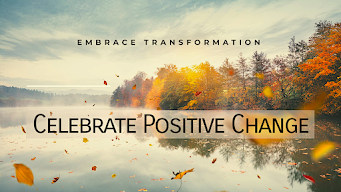The Paradox of Progress: Why We Shame Transformation When We Should Celebrate It
Imagine a child who throws a tantrum, breaks a vase, and then, after some reflection, apologizes and cleans up the mess. Our instinct is to praise the child’s growth, to acknowledge the effort in making amends. So why, when individuals, families, or even entire nations acknowledge past wrongdoings and commit to change, do we so often drown them in guilt and shame rather than celebrate their transformation?
This is the paradox of progress—a baffling disconnect between how we perceive personal redemption versus collective moral evolution. On an individual level, we understand the power of change, yet when applied more broadly, we focus on past transgressions rather than the potential for a brighter future.
Why Do We Resist Celebrating Change?
Part of the answer lies in the nature of the wrongs themselves. Betrayals, systemic oppression, and historical injustices such as slavery and colonialism leave deep wounds. The recognition of these wrongs naturally brings grief, anger, guilt, and shame—emotions that serve a purpose by acknowledging the gravity of harm and fueling the demand for justice.
However, the problem arises when these emotions dominate the narrative indefinitely. We become trapped in blame, endlessly revisiting the past instead of channeling energy into meaningful progress. Why does this happen?
1. Fear of Forgetting
We worry that celebrating progress might erase the suffering endured, allowing history to repeat itself. The fear is that by focusing on transformation, we may diminish the pain of those affected by past wrongs.
2. The Comfort of Blame
Blaming an individual, a generation, or an entire nation feels easier than confronting the systemic issues that enabled wrongdoing in the first place. Blame offers a simple—if ultimately ineffective—solution.
3. Power Dynamics
Acknowledging past transgressions can serve as a tool for accountability, ensuring that the voices of the marginalized are heard. However, if this focus remains solely on blame, it can sometimes prevent progress rather than enable it.
4. The Illusion of Perfection
We often hold ourselves and others to impossibly high moral standards. We struggle to accept that individuals, families, and nations are capable of both great harm and profound change.
5. A Misunderstanding of Accountability
True accountability is not just about punishment or shame; it involves acknowledging harm, taking responsibility, and actively working to ensure history does not repeat itself.
The Cost of Overemphasizing Guilt and Shame
When guilt and shame dominate without space for growth, the consequences can be severe:
- It stifles progress. Dwelling on the past can paralyze action, preventing meaningful steps toward a better future.
- It demoralizes those striving to change. Constant shaming can erode motivation and lead to despair rather than growth.
- It deepens division. An excessive focus on past wrongdoing can fuel resentment and hinder reconciliation.
The Power of Celebrating Transformation
Imagine a world where transformation is met with recognition and encouragement. A world where families acknowledge harmful patterns and commit to healing, where nations confront their history and work toward justice, where humanity collectively learns from its mistakes and builds a future of peace and understanding.
Celebrating progress allows us to:
- Focus on the positive. Recognizing growth inspires hope and motivates further action.
- Empower change-makers. Acknowledging efforts reinforces commitment and perseverance.
- Bridge divides. Fostering shared values and common goals strengthens unity and reconciliation.
- Set a precedent for future generations. Demonstrating that change is possible encourages others to confront their own biases and prejudices.
This is not about excusing past behavior or diminishing suffering. It is about recognizing that true justice involves both acknowledging harm and celebrating the courage and commitment required to create a better future.
The child who broke the vase isn’t just cleaning up a mess—they’re learning a valuable lesson about responsibility and empathy. Similarly, when individuals, families, or societies acknowledge past wrongs and commit to transformation, they are not merely rectifying mistakes; they are evolving. And that evolution is something to be proud of.
Let us embrace the paradox of progress, celebrate the power of change, and build a future where our collective history is not just a source of shame, but a testament to our capacity for growth and redemption. Only then can we truly heal and move forward together.




Comments
Post a Comment